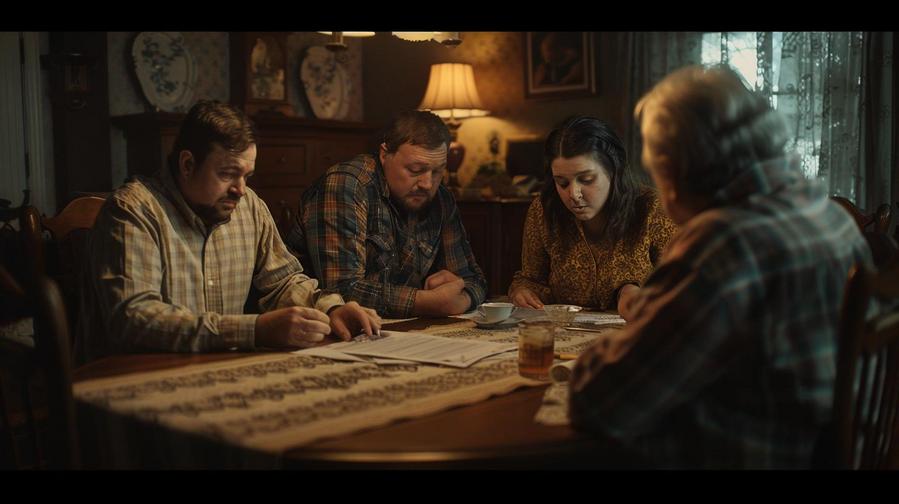If you’re asking yourself, “Can you sell a house before probate in Michigan?” you’re definitely not the first person to wrestle with this question. Dealing with the property of someone who has passed away becomes extremely difficult when probate creates obstacles to access the belongings of your departed loved one. The process of completing a sale sometimes allows you to advance but it presents numerous obstacles which are difficult to overcome. I will explain the actual possibilities and the required steps and common errors which happen during rapid home sales – particularly if you’re looking to sell my house fast in Detroit.
TL;DR:
- Most homes cannot be sold before probate due to legal ownership transfer requirements.
- Exceptions: joint ownership with rights of survivorship or properties held in trust.
- Selling during probate requires court approval, appraisals, and debt settlement.
- Always consult a probate attorney for guidance on Michigan-specific laws.
- Alternatives like joint ownership or trusts can avoid probate altogether.

What is Probate and How Does it Affect Selling a House?
Understanding the Probate Process
Probate functions as a legal system which guarantees the transfer of deceased person belongings to their authorized recipients. The court confirms the will through probate to validate it and to distribute all debts before distributing assets to beneficiaries. The entire process in Michigan usually takes several months but it can stretch into a year when things become more difficult. Based on my experience with over 1,000 real estate deals simple estates usually finish within six months but complex estates with multiple properties or contested claims can exceed 18 months. The real estate process extends all matters into extended timeframes which creates frustration when people want to finish quickly.
How Does Probate Impact the Ability to Sell a House?
The problem arises because your family member owned the property alone which means you have to wait for probate to finish. Why? Because technically, nobody has the legal right to sell it yet. Title companies stay away from these deals completely. They need to know the person selling actually has the authority to do so. The process creates frustration for everyone involved yet it stops numerous potential legal problems from occurring in the future. I’ve worked with families who tried to bypass this process, only to have the sale fall through at the last minute when the title company discovered the ownership issue.
Circumstances Under Which Probate is Not Required
The entire probate process does not apply to every property. If the house was in a living trust, for instance, the trustee can usually handle the sale without court involvement. The same rule applies to properties which are jointly owned with survivorship rights. The surviving owner receives the complete property through automatic transfer. These situations provide an opportunity to shorten waiting times by several months but they occur less frequently than most people expect. I have worked with Michigan homeowners for several years and I estimate that only about 30% of properties meet the criteria for these exceptions.
Can You Sell a House Before Probate is Granted?
Legal Considerations for Selling Before Probate
I hate to be the bearer of bad news, but in most cases, Michigan law says you need to go through probate first. Michigan wants to guarantee every person with a claim gets their turn to speak. This includes heirs, creditors, and yes, even that cousin nobody’s talked to in years. The Michigan Probate Code contains rigorous provisions which govern this procedure. Without proper legal authority, any sale you attempt could be voided later, leaving you with potential lawsuits and financial liability. For complete information about this process you should study how to transfer property ownership in Michigan.
Disclaimer: This information is for educational purposes only and is not legal or financial advice. Please consult a licensed professional for guidance on your situation.
Situations Allowing a Sale Without Probate
Multiple golden tickets exist which enable customers to bypass the waiting process. Joint ownership with survivorship is the big one. If Mom and Dad owned the house together and Mom passes, Dad can sell whenever he wants. Trust property management functions in the same way. But here’s my advice after years in this business: even if you think you fall into one of these categories, double-check with a local attorney. I’ve seen too many people assume they’re in the clear only to hit a snag later. A family I worked with believed they owned the property together but the deed showed tenants in common ownership so probate became necessary.
What are the Steps to Sell a House During Probate?
The Role of the Executor
Serving as an executor means handling all matters of someone else’s life after their death. You need to maintain home security while you decide between listing the property through traditional methods or selling it to a cash buyer. First things first: change those locks. I have witnessed multiple instances where distant family members along with local residents have taken possessions from estate properties. The property requires insurance coverage maintenance and regular utility service maintenance and repair responsibilities. The responsibility exceeds normal limits because I have to deal with this while still handling my personal loss.
Steps for Obtaining Court Approval
- Open the estate with the probate court (typically takes 2-4 weeks to get appointed)
- Notify heirs and creditors (Michigan requires a 4-month creditor claim period)
- Inventory all assets, including the home (due within 91 days of appointment)
- Get a professional appraisal (usually costs $400-600 in Michigan)
- Request court approval to sell (can take 30-60 days for approval)
- Close the sale and distribute proceeds (following court-approved distribution)

How to Handle Mortgages on a House in Probate?
Selling with a Traditional Mortgage
Good news: you can absolutely sell a house that still has a mortgage on it. The mortgage loan gets paid off through the house sale proceeds and any remaining amount will be used to pay off other debts or given to the heirs. The court requires the bank to receive payments before any other payments can be made. Fair? Maybe not always, but that’s how it works. Just remember, you’ll need to keep making those mortgage payments during probate, or the bank might start foreclosure proceedings. I’ve seen estates lose tens of thousands in equity because nobody kept up with the payments for a few months.
Managing a Reverse Mortgage
Reverse mortgages are a different beast entirely. The time for payment arrival is usually short after the borrower passes away. We’re talking months, not years. Most reverse mortgage companies give you six months to pay off the loan, though you might get extensions up to a year total. The homeowner must act quickly to avoid losing their property through foreclosure. The families I have seen did not understand how short their time period actually was so they started moving out. The clock starts ticking from the date of death, not when you discover the reverse mortgage exists. If you’re worried about foreclosure, you can learn more about how to sell a house before foreclosure.

Why Consult a Probate Attorney When Selling a House in Probate?
Importance of Legal Advice
I understand that lawyers cost a lot but trying to handle probate without their help feels like doing surgery on your own body. Technically possible, but probably a terrible idea. A skilled lawyer understands the quick paths and possible complications and might present alternative solutions which you have not thought about. They might save you from making costly mistakes, like selling below market value without proper court approval, which could make you personally liable to other heirs. They might even point you toward selling your house for cash in Michigan or other quick-sale options that could work for your situation.
Common Pitfalls to Avoid
- Missing court deadlines (can delay the entire process by months)
- Failing to notify creditors (they could come after you personally later)
- Underpricing the property (court might reject the sale, costing you time and money)
- Ignoring mortgage obligations (foreclosure can happen even during probate)
- Distributing assets too early (you could be personally liable for estate debts)
- Not maintaining the property (insurance claims might be denied for neglect)
For detailed legal help, consult a Michigan probate attorney.
Alternatives and Solutions for Selling a Property in Probate
Options Without Probate
The best way to deal with probate? Avoid it entirely. Joint ownership and living trusts enable property transfer to occur automatically when a person passes away. Of course, this requires planning ahead. The information provides no assistance for current estate cases but it might prove useful for future property matters. I always tell my clients: spend a few thousand on estate planning now, or your heirs will spend tens of thousands on probate later. For more on making the process easier, check out how to sell your home without the stress.
Worked Pricing Example
Real-World Example from a Recent Michigan Estate Sale: The market value of a suburban Detroit home in excellent condition stands at $180,000. The property requires $25,000 worth of repairs which includes a new roof and electrical system upgrades and some cosmetic improvements and closing costs that amount to $5,000. An investor aiming for $20,000 profit would propose: $180,000 – $25,000 – $5,000 – $20,000 = $130,000. Yeah, it’s less than market value. But sometimes that trade-off makes sense if you need to close quickly and don’t want to deal with repairs. The sale process saves you from paying several thousand dollars in holding costs because you avoid monthly expenses for utilities and insurance and property taxes that could reach between $5,000 and $8,000 during an extended probate period.
This approach might make sense if time is tight, like when you’re selling a house quickly in Grand Rapids.
Seller Checklist
- ☐ Gather the will and death certificate (get multiple certified copies)
- ☐ Secure the property (change locks, notify neighbors)
- ☐ List all debts and liens (check for tax liens, mechanics liens)
- ☐ Get an appraisal (required for court approval)
- ☐ Consult a probate attorney (before making any major decisions)
- ☐ Choose a sale method (traditional listing vs. cash buyer)
- ☐ Maintain property insurance (update policy to vacant property coverage)
- ☐ Keep utilities active (prevents damage and shows better)
FAQs About Selling a House Before Probate
Can I list the property while waiting for probate?
Yes you can. You can start marketing the house even before probate wraps up. The buyer needs to wait for court approval before they can complete the purchase. The strategy functions effectively in hot markets where buyers must compete with each other. The process of obtaining court approval starts with the submission of the highest offer that the executor has received. Just be transparent with potential buyers about the probate situation. Most will understand, though some might walk if they need to close quickly. In places like fast home sale in Lansing, getting a head start on finding buyers could save you weeks once you get the green light.
What if heirs disagree on selling?
Family fights about money and property tend to spiral into dangerous situations. I have seen two siblings who have been estranged for years become involved in a heated dispute about their mother’s house. The court system will likely become involved but the process will require expensive and lengthy proceedings. Mediation usually works better. The process provides a faster solution which helps people protect their existing family bonds. People refuse to reach agreements in certain situations regardless of what happens. The court system will decide to sell the property through partition sale and distribute the proceeds to all parties regardless of their agreement status.
Is selling to an investor faster?
Generally speaking, yes. Houses are generally purchased by investors in their current condition so they do not perform repairs on leaking roofs or kitchen upgrades from the 1970s. Once probate clears, they can close in days rather than weeks. You’re leaving money on the table, sure. Quick completion of work takes precedence over achieving maximum financial gain in certain situations. Especially when you factor in the holding costs, stress, and time involved in a traditional sale. I have handled numerous estates where the executor operated from a different location and required basic straightforward procedures to finish the process.





